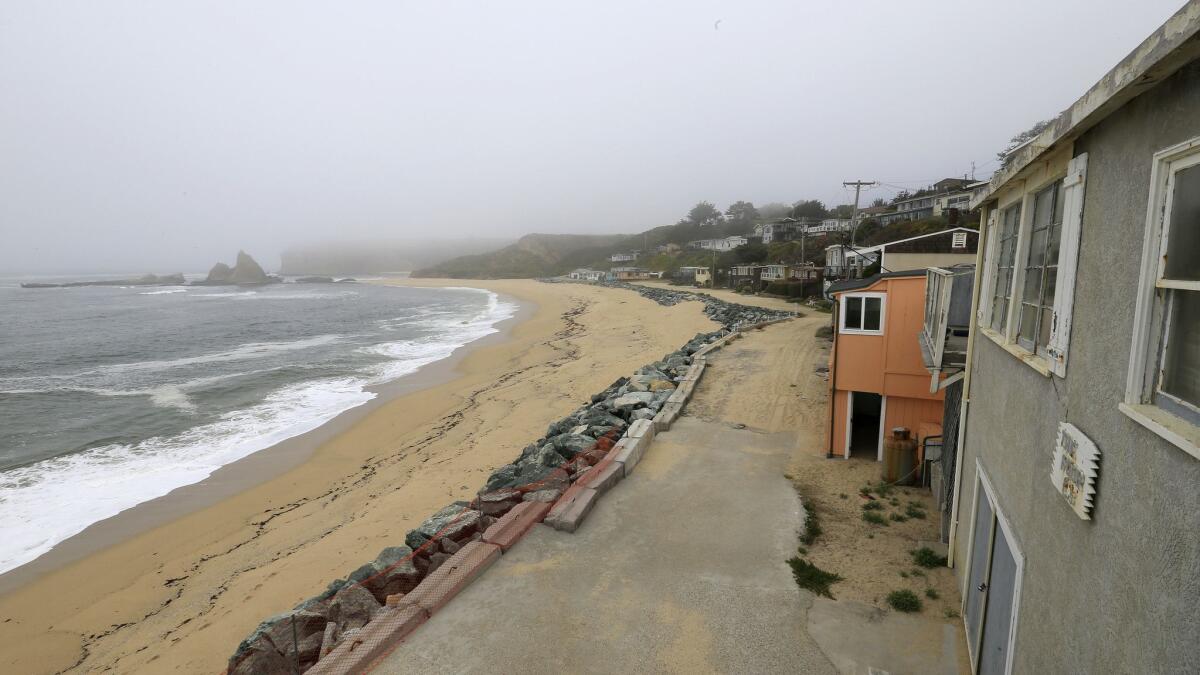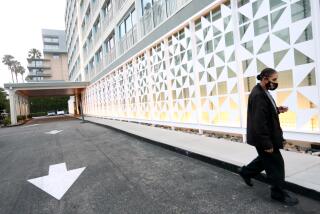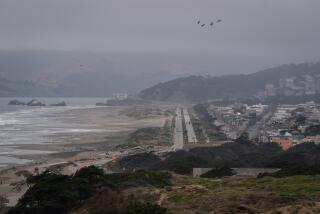Editorial: It would be nice if billionaire Vinod Khosla finally gave compromise a try on public beach access

Frankly, the entire state of California dodged a bullet when the U.S. Supreme Court decided Monday not to hear the case brought by Vinod Khosla, a billionaire entrepreneur. Khosla, the owner of an expanse of property on Martins Beach south of Half Moon Bay, argued that he had a right to do with his property as he pleased even if that included closing off a century-old access route to the beach. Nothing less than the validity of the California Coastal Act — which has protected the public’s right to access the coast since 1976, occasionally at the displeasure of beachfront property owners — would have been at stake if the justices had agreed to hear his appeal.
We don’t know why the court didn’t take the case, but the result of its decision is to let stand a lower court ruling that Khosla must apply for a coastal development permit before he does anything on his property to change public access to the coast. And that’s good.
In a statement Monday, Khosla’s legal team said he will now apply for that permit. For years, he has argued he should not have to do that to make a change on his own property. The courts have wisely ruled otherwise. The Coastal Commission is a regulatory agency, and it is only through the permitting process that the commission can implement the Coastal Act, evaluate whether development is encroaching on access and balance the rights of the public with the rights of property owners. And if Khosla asks for a permit to close off access, as expected, officials should not grant one. He should have to maintain access to the beach through his property.
The public needs to be able to keep its access to the part of the beach the public owns.
Khosla bought the Martins Beach property in 2008. For nearly a century before, a road through the property offered public access to beachgoers. Various amenities came and went on the beach, but the access road was there throughout. The Coastal Commission contends that by using the road for decades, the public obtained a ”prescriptive easement” on the property — and that Khosla was well aware of that easement when he bought the land. Khosla closed the gate across the road after, he said, it became too costly to operate the parking lot and other facilities on the route. In recent months, though, he has opened the gate for varying hours during the day, employing an attendant who collects a fee for parking and shows people how to walk down the road to the beach.
Khosla appears to be spoiling for a new court fight, but there’s a way to resolve the situation without even more litigation. If San Mateo County officials or the commission denies Khosla permission to close the access road, either permanently or intermittently, he should do what dozens of other beachfront property owners up and down the coast of California have done: work with the commission on a compromise that keeps the access road open but takes the burden of operating it off his shoulders (even if he could well afford it — the penalties he is currently accruing for violating the Coastal Act probably surpass whatever he is paying the attendant he hires to oversee the road).
Enter the Fray: First takes on the news of the minute from L.A. Times Opinion »
Commission officials have said several times that they are willing and eager to work with him on this. One option is finding another organization to oversee and maintain the access road and collect a reasonable parking fee (which Khosla is allowed to charge). This organization could also take responsibility for whatever amenities at the beach the commission deemed appropriate — bathrooms, for instance.
Or, the state could try to acquire just the road. That would relieve Khosla of the headache of operating and maintaining it.
But to get to a solution, Khosla will have to acknowledge that decades of public use have made the road a public accessway that the property sale did not extinguish. At the end of the day, the public needs to be able to keep its access to the part of the beach the public owns.
Follow the Opinion section on Twitter @latimesopinion or Facebook
More to Read
A cure for the common opinion
Get thought-provoking perspectives with our weekly newsletter.
You may occasionally receive promotional content from the Los Angeles Times.






